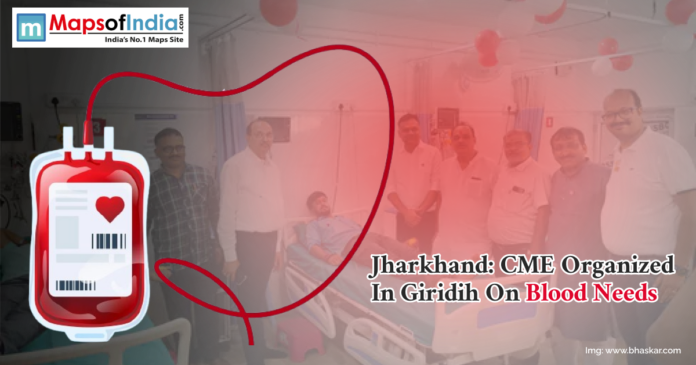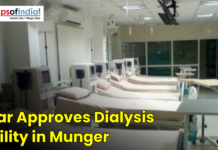The topic of blood requirement and management was recently addressed through a Continuing Medical Education (CME) program held in Giridih, Jharkhand, in an attempt to educate doctors, healthcare professionals, and blood bank officials about the need to have blood at the right time and safe transfusion techniques, as well as the increasing demand for voluntary blood donation.
The workshop involved the local medical practitioners, such as physicians, surgeons and pathologists, who talked about the increasing demand for blood in the district and the surrounding rural areas. According to experts, blood is among the most important resources in saving lives, particularly when it comes to trauma, maternity complications, and treatment of thalassemia, cancer treatment, and surgeries. Nevertheless, hospitals in Jharkhand tend to be short of donors because only a few are willing to volunteer.
At the CME, speakers stated that there was a necessity to make the system of voluntary blood donors in the district stronger. They advised the health workers to be on the frontline to create awareness and encourage the citizens to give blood at regular intervals. The need to store, transport and use blood properly to reduce wastage was also discussed. The unusual blood groups were especially considered, and it was recommended to develop an emergency registry to be more prepared for the occurrence of critical cases.
Medical experts indicated that big cities have a better infrastructure to cope with blood supplies, but smaller areas such as Giridih are still grappling with the availability. The awareness program, community-level campaigns and involvement of the NGOs, educational institutions and the youth group can be used to bridge this gap.
Another focus of the CME was the new guidelines on safe practice of transfusion to make sure that the patients get the appropriate type of blood without any risk of infection or complications. Physicians were reminded that they had an ethical obligation to use blood units sparingly and that they should not carry out unnecessary transfusions.
The move was welcomed by the local health authorities, who said that such CME programs play a very crucial role in building capacity. They hoped that the training would enable the doctors and staff in Giridih to deal better with the emergencies, as well as introduce a culture of voluntary blood donation among the people.
The rally ended with an appeal to the citizens of Giridih and Jharkhand in general to step forward and give blood regularly, noting that one unit of blood would save many lives.










